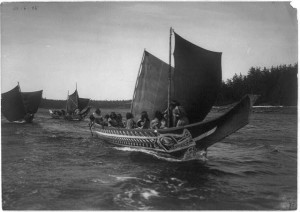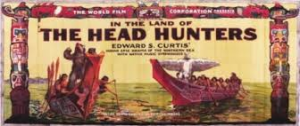Christine Bolt, who died in 2004, was one of the founding members of the Board of Studies in History (now the School of History) and a leading figure in the Centre for American Studies at the University of Kent. She came to Kent in 1966, along with the second intake of students, as Lecturer in American History; she was only one of two women members of the Board at that point in time, and in her later years at Kent, when she rose to senior administrative positions, Christine did much to promote the interests and welfare of the university’s female staff.
Christine’s chief interest in her early years at Kent was in American social history, especially of the nineteenth-century, and more particularly in slavery and the antislavery movement: her doctoral dissertation for the University of London on ‘British Attitudes to Reconstruction in the United States, 1863-1877’ was reworked for her first book, The Anti-Slavery Movement and Reconstruction: A Study in Anglo-American Co-operation, 1833-1877. This was followed by Victorian Attitudes to Race (1971) where her concerns had moved on to anthropological, ethnological, and pseudo-scientific constructions of race theory. A general history of the United States, aimed primarily at English undergraduate readers, A History of the USA followed in 1974.
In the 1980s Christine’s interests turned increasingly towards the history of the Native American, particularly US government policy towards Indian removals, notably the strategies of assimilation, and their social, economic and demographic consequences. The results of her research appeared as American Indian Policy and American Reform (1987). Almost indefatigable, Christine attentions now turned her attention to the women’s movements in both the United States and Britain: a comparative study, The Women’s Movements in the United States and Britain from the 1790s to the 1920s was published in 1993, and a ‘companion’ volume that helpfully and expeditiously reviews the scholarship, Feminist Ferment: “The Woman Question” in the USA and England, 1870-1940 appeared in 1995. A further amplification of this theme was Sisterhood Questioned?: Race, Class, and Internationalism in the American and British Women’s Movements, 1880s-1970s published in 2004.
Whilst distinguishing herself as both a scholar and a teacher, Christine was also Chair of the Board of Studies in History (now School of History), Director of the Centre for American Studies. Sub-Dean of the Faculty of Humanities, and from 1988 until 1991, Pro-Vice Chancellor, thus becoming the first woman to hold a senior administrative position at the University of Kent. Her contribution to the development and growth of American Studies at Kent was immense. She took over the Directorship of the Centre at the point at which the programme was expanding, both in student numbers and in its undergraduate course provision. And, of course, she brought to American Studies the prestige that naturally arose from her ‘visibility’ as a scholar. American Studies at Kent during her tenure as Director was a four-year degree only, the third year being spent at an institution in the United States and Christine was responsible for negotiating the expansion of Kent’s student exchange arrangements. In those the Directorship of the Centre carried little in the way of reduced teaching or administrative responsibilities and Christine was unflagging in her commitment to her students, her subject, and the professional well-being of her colleagues.
Dr. Henry Claridge
Dr Emma Long, now working as a Lecturer in American History at the University of East Anglia boasts an illustrious Kent pedigree. She was an undergraduate in American Studies (1995-1999), a postgraduate student (2001-9), and, most recently, an associate lecturer and student support officer (2009-2012). As holder of the first Bolt scholarship (2005-6) for her PhD, entitled ‘“Drawing the Line”: Religion, Education, and the Establishment Clause, 1947-1997,’ Emma looks back at her time at Kent and particularly the value of the Bolt scholarship
“I was lucky to get to meet both Christine and Ian Bolt. I met them at different times at under different circumstances, but both played a role in the career I have today. I met Professor Bolt (she was not Christine to her students) as a first year American Studies student taking her classes on the American Revolution and on 1960s America. I remember a slightly intimidating but nevertheless encouraging teacher who wrote kinder comments on my essays than I might do if I was marking them now (I still have them so I’ve been able to check). Professor Bolt also supervised my second year dissertation on Native American removal in the mid-19th Century and, again, I remember the support and encouragement as well as the attempts to break me of bad writing habits (some more successful than others!).
I met Ian Bolt some time after I returned to Kent as a PhD student. He had just launched the Bolt Scholarship in memory of Professor Bolt and I had applied. He was on the interview panel and I remember his warmth, his enthusiasm and his interest. I met him twice after that, once before I left for the US to make use of the scholarship I was awarded, and again shortly after I returned. On both occasions he was interested to hear what I was planning and what I was working on and I regret that he did not have the opportunity to see the finished thesis.
The Bolt Scholarship made all the difference to my research, and I will be forever grateful for being the inaugural recipient. It allowed me to spend six months at the Library of Congress in Washington DC, wading through the private papers of former Supreme Court Justices, giving me access to newspaper and journal material I could not have obtained in the UK, and ensuring speedy access to books that I would have had to wait weeks for through interlibrary loans. My thesis had a depth and detail it simply would not have had without the opportunity that the Bolt Scholarship provided. Equally importantly, the scholarship gave me time: time away from teaching, time away from work, time to immerse myself in my research; an opportunity I cannot imagine happening again.
Christine Bolt helped to make me a better student; Ian Bolt, through his generous scholarship, gave me the opportunity to expand my research opportunities. Both helped me on my path into academia and I will always be grateful.”
Dr Emma Long, Lecturer in American History, University of East Anglia
 To lauch our online photo exhibition of images from your year (or semester) abroad, Dr Karen Jones writes:
To lauch our online photo exhibition of images from your year (or semester) abroad, Dr Karen Jones writes:


